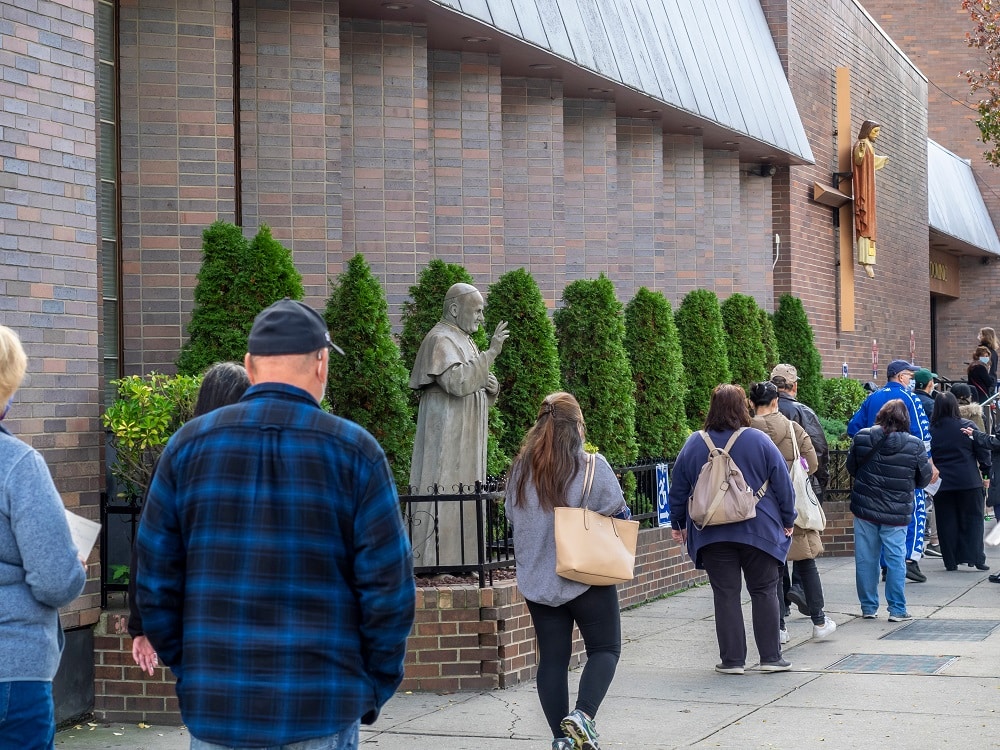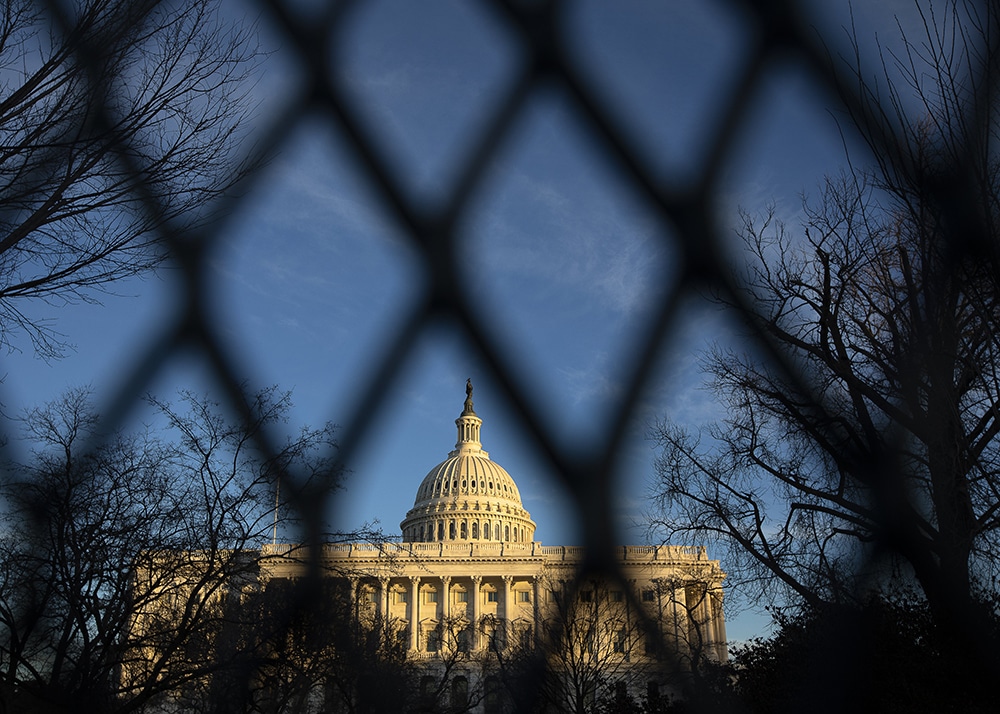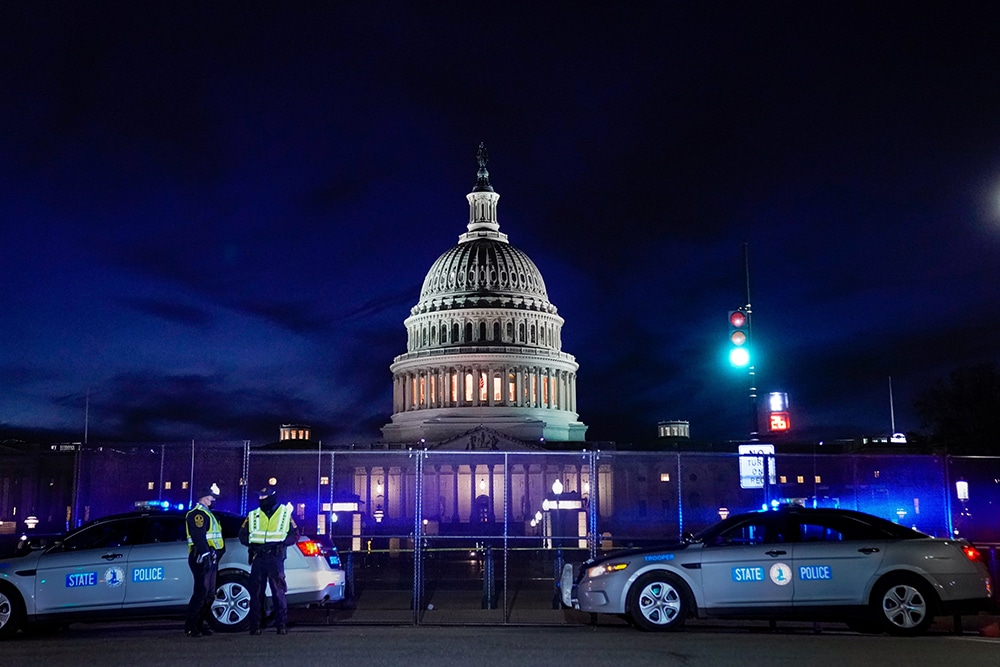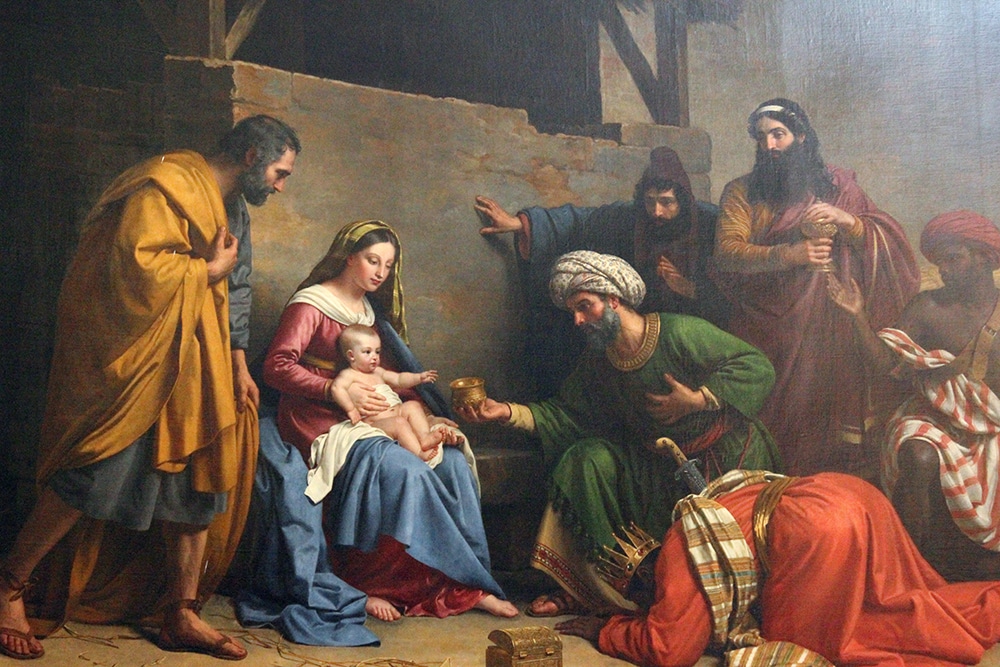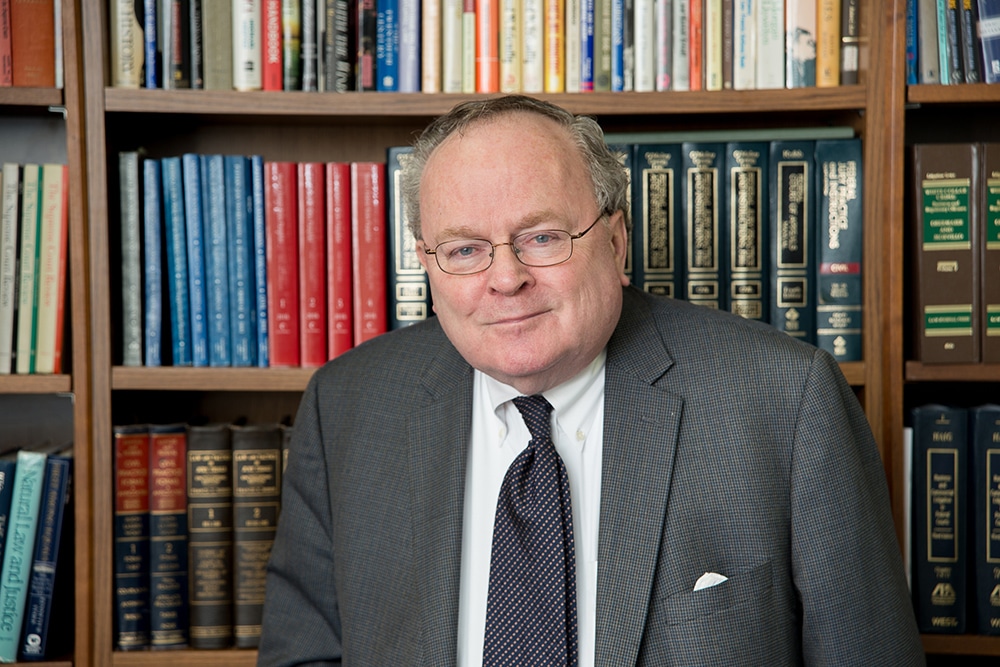In a statement congratulating Joe Biden on his election as president, the head of the U.S. bishops’ conference urged him and other leaders to practice “dialogue and compromise” for the sake of the nation. But it remains to be seen whether Biden is ready to compromise on the support for abortion that he voiced so often during the campaign.
Instead, for starters, amid an anticipated flurry of executive orders soon after taking office in January, he is thought likely to reinstate U.S. funding of abortion overseas, which President Donald Trump halted four years ago. Still, Biden may have to back off on other pro-choice measures requiring congressional approval if, as seems possible, the Republicans retain control of the Senate.
Archbishop José H. Gomez of Los Angeles, president of the U.S. Conference of Catholic Bishops, seemed to suggest some such hope as that in his congratulatory statement, describing America as a place where “the sanctity of every human life is defended.”
Perhaps the most obvious immediate conclusion to be drawn from the election results is that pollsters and media pundits who had predicted an overwhelming Democratic triumph in both the presidential and congressional votes were overwhelmingly wrong. Instead, what the election apparently produced is divided government, with Democrats in charge in White House and, though by a reduced margin, the House of Representatives, and Republicans on top in the Senate.
Exit polls contradicted one another, but the Associated Press Votecast poll showed 50% of Catholics overall voting for Trump and 49% for Biden. Among white Catholics, it was 57% for Trump and 42% for Biden, while among Hispanic Catholics, 67% backed Biden and 32% Trump.
At least tentatively, the outcome of the election for pro-lifers was better than they might have feared, although less than they might have hoped.
Often during the campaign, Biden went out of his way to burnish his pro-choice credentials, even going so far as to repudiate his support for the Hyde Amendment barring federal funding for abortion, a position that he had held for four decades.
The president-elect also doubled down on his longstanding support for LGBT interests, telling a gay newspaper late in the campaign that he would seek enactment of legislation called the Equality Act during his first 100 days in office.
The bill, which was approved by the House of Representatives last May, would add sexual orientation and gender identity — homosexuals and transgender persons, in other words — to the list of specially protected categories in civil rights law while providing no conscience exemption for religious groups. In practice, this means that, for example, a church school that refused to renew the contract of a teacher in a gay marriage would risk being penalized.
The legislation is opposed by the U.S. bishops’ conference and other religious groups. If Republicans remain in charge in the Senate — something that now depends on the outcome of two senatorial runoff votes in Georgia next Jan. 5 — the measure now stands little chance of passing.
Abortion and LGBT rights were of course hardly the only issues in which the Church has a stake. Health care, immigration and the coronavirus pandemic were prime concerns in the voting. And widespread angst concerning racial justice, national unity, and American values beset Catholics along with everybody else.
But the strong and overt support for abortion voiced by Biden and his running mate, California Sen. Kamala Harris, inevitably brought the life issues to the fore for many voters. As candidates, both Biden and Harris were endorsed by NARAL Pro-Choice America.
For Biden, this activism on abortion marked the latest stage in a process of change dating back many years. Following the Supreme Court’s 1973 Roe v. Wade decision legalizing abortion, Biden, a newly elected U.S. senator from Delaware at the time, said he thought the court had gone too far. But during the recent campaign, by contrast, he declared his approval for abortion “under any circumstances.”
Biden, a Catholic, came under fire from some conservative Catholics for his stand on abortion. But even though the American bishops individually made many statements during the campaign in which they called on Catholic voters to vote responsibly, and collectively declared abortion to be their own “preeminent” issue, the hierarchy, with just a few exceptions, kept mum about Biden and his abortion advocacy.
Among other things, Biden pledged to seek enactment of the substance of the Roe v. Wade decision as federal law — though what form legislation like that might take is not clear — and has said he would require the Little Sisters of the Poor and other groups with religious objections to pay for contraceptive and abortifacient coverage for employees under the Affordable Care Act.
Twice already, however, the Supreme Court has ruled in favor of the Little Sisters, and the court — now with a conservative majority of six, three of them named by President Trump, including newly confirmed Justice Amy Coney Barrett — represents a major obstacle to this and some other items that would be on his legislative wish list if his apparent lead in the election holds.
The day after the election, for instance, the court heard oral arguments in a case from Philadelphia in which the local archdiocese’s social services agency is challenging the city government’s action in forcing it out of the foster care field for refusing to place foster children with same-sex couples. The case (Fulton v. City of Philadelphia) is closely watched as a key test of where the court now stands on religious liberty.
Some liberal Democrats have called for “court-packing” legislation that would erase the Supreme Court’s present conservative majority by empowering a compliant president and friendly Senate to increase the number of justices beyond the present nine by adding several new liberal members to the bench.
Biden has expressed reservations about making the court a political football while saying he would appoint a bipartisan commission to consider changes in the federal court system and report back in six months. But with the GOP apparently on top in the Senate, the election results probably have shelved court-packing for now if not permanently.
Russell Shaw is a contributing editor for Our Sunday Visitor.

